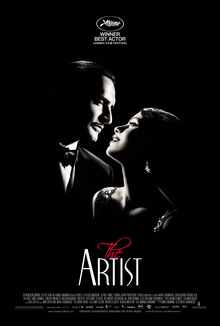2014—Bird
Man: Or (The Unexpected Virtue of Ignorance), Alejandro G. Inarritu
Nominated:
American Sniper, Boyhood, The Grand Budapest Hotel, The Imitation
Game, Salma, The Theory of Everything, Whiplash
Should
have won: American Sniper
Be
sure to see: Foxcatcher, Godzilla, Into the Woods, Nightcrawler,
Wild, Wish I Was Here
“I'm
an answer to a fucking trivial pursuit question!”--Riggan Thompson
In 1948, Alfred Hitchcock's Rope had an interesting gimmick.
The movie was about a dead body hidden in a trunk under everyone at a
cocktail party's noses. The gimmick is that it was shot in 10 long
takes, a movie people remember as “that Hitchcock done in one
take”. This is risky because if there is a mistake deep into the
scene, the whole thing would be started over since there is no other
angles to begin. Not to mention, there are no edits to cover
mistakes. 2002's Russian Ark and a recent but bad thriller
called Silent House had the same approach. Then, in 2014, the
Academy's best picture Birdman pulls it off again...to an
extent.
Because the movie takes place over a couple of days, we know it was
not done in one take, it was done in 16 in fact, which is still
pretty impressive. Careful viewers can spot the dark spots where the
cuts were made and there is an effective time lapse to indicate night
to day. The one-take gimmick is impressive, and no doubt meticulously
blocked and rehearsed for each actor and crew member, but beyond that
the movie itself was pretty neat. However, its artiness might not sit
well with everyone. To add to the film's atmosphere, the score is
entirely a man on the snare drums who, on occasion, appears on screen
like the orchestra in Blazing Saddles. However, his
appearances might or might not be for laughs.
Michael Keaton, in an Oscar worthy role, plays Riggan Thompson, a
stage actor who is acting in and directing the play “What we talk
about when we talk about love”. He is a former film actor, best
known for playing a super hero called Birdman. Twenty years ago he
declined making Birdman 4. Incidentally 22 years prior to this
movie was 1992 when Keaton portrayed the Caped Crusader in Batman
Returns. He, like his character in this film, did not return for
the next sequel.
Though Keaton drives the movie, some others stand out like Emma Stone
who plays his daughter and Edward Norton who plays is costar in the
play. Both are Oscar nominated performances and surprisingly, Zach
Galifianakis shines in a serious role as Riggan's agent.
Riggan shows some telepathy throughout the movie. It opens with him
floating in his dressing room wearing tighty whities and is able to
throw items across the room with his mind. He also still hears his
Birdman character's voice in his head as sort of an alter ego. Late
in the film he takes his telepathic ability to a whole new level.
That's all I'll say about that.
The best and certainly most famous scene is when Riggan gets locked
outside just before he goes onstage again. In his second time
onscreen wearing only underwear, he has to walk through a crowd while
trying to make it back to the theater. After this mishap gets blasted
all over you tube, his daughter takes a positive spin on it. I liked
her view. It turned a particularly goofy moment into a thought
provoking one.
The subtitle of the movie is a reference to the headline of an unfavorable review of his play, and I'm not sure it is necessary for the title of this movie, especially since it will never be referred to in its entire title, I predict. I compare it to Dr. Strangelove. How many people actually continue with Or How I Learned to Stop Worrying and Love the Bomb? And, yes, the parenthesis are supposed to be after the word “or”.
The most important thing I'd like to point out is, though the movie
is good, it is in no way better than American Sniper. But
there is no way it would lose to that movie, not in liberal
Hollywood. An artsy, gimmicky movie about show business vs a movie
about a sniper in an unpopular war is a huge mismatch in this day and
age. True, war movies have taken home the prize many times in the
past but none with such subject matter as Eastwood's film. American
Sniper is a far superior film, despite the fake baby.
*Note:
Michael Keaton and Bradley Cooper were both beaten by Eddie Redmayne
for The Theory of Everything despite giving knockout
performances. Cooper continues to be snubbed year after year but
there is another performance of which to take note. Jake Gyllenhaal's
performance in Nightcrawler is my favorite performance of the
year in my favorite movie of the year. Take a look.
